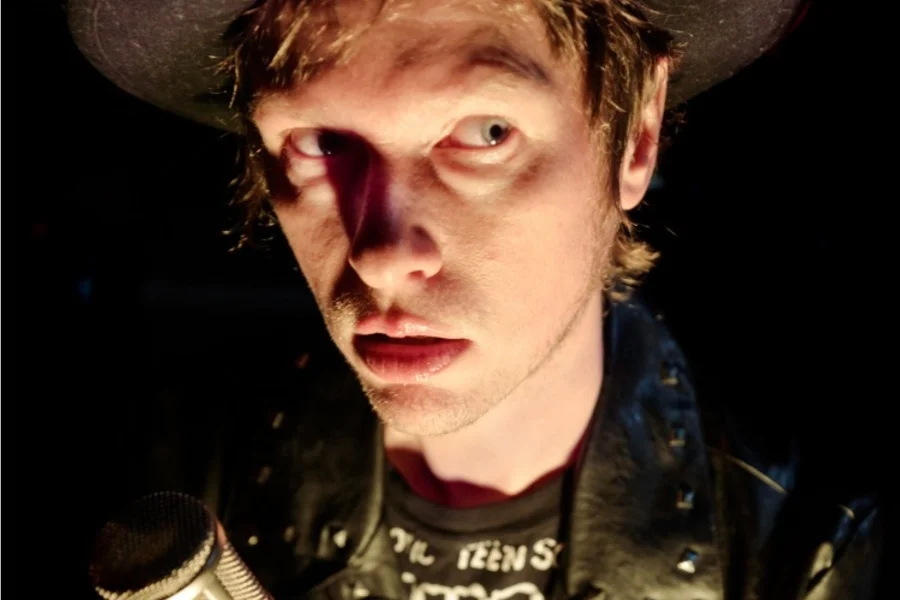He was called the “Quiet Beatle,” but “Frustrated Beatle” may have been a better tag for George Harrison, who found himself overshadowed in the Fab Four by two of the most important songwriters in history.
Still, the guitarist managed to create a memorable body of work with the Beatles, and he notably turned his bandmates onto Eastern mysticism.
Harrison, who died in Los Angeles Thursday after a long battle with cancer, wrote and sang such Beatles nuggets as “Something,” “While My Guitar Gently Weeps,” “Here Comes The Sun” and “Taxman.”
After the Beatles broke up, he embarked on a patchy solo career that started strongly with the 1971 triple album “All Things Must Pass,” and its hit singles “My Sweet Lord” and “What Is Life.” Subsequent efforts failed to live up to that promise, displaying little inventiveness.
In the late 1980s, his career picked up again courtesy of the Traveling Wilburys, a “supergroup” that also included Bob Dylan, Tom Petty, Jeff Lynne and the late Roy Orbison.
Harrison re-released “All Things Must Pass” last year with an updated version of “My Sweet Lord.” At the time of his death, he had been working on new tunes for an album with a little help from his son, Dhani.
As a boy, Harrison was influenced by such guitarists as Jimmie Rodgers, Carl Perkins, Scotty Moore and Eddie Cochran. But he was not an enthusiastic student.
“God knows how I ever made anything of myself,” he told Billboard magazine in 1996. “I used to sit there and practice as a kid, but I couldn’t sit there forever; I wasn’t that keen.”
MAJOR INFLUENCE ON BEATLES SOUND
As a Beatle, he watched while John Lennon and Paul McCartney wrote hit after hit. Harrison – and to a lesser extent drummer Ringo Starr – had to fight to have his compositions accepted on the group’s albums. Yet, he was a major influence on the overall Beatles sound, often wielding his trademark 12-string Rickenbacker guitar to come up with memorable riffs for such songs as “A Hard Day’s Night” and “Ticket to Ride.”
Through his friendships with Indian musician Ravi Shankar and controversial guru Maharishi Mahesh Yogi, Harrison developed an interest in Eastern culture. He learned to play the sitar, a 21-string guitar-like instrument, using it on such songs as “Norwegian Wood” and “Rain.”
Harrison had to wait until 1969 before he got his first A-side single – “Something,” from the “Abbey Road” album. The ballad, which he wrote for his first wife, Pattie Boyd, was his best-known Beatles song, reaching No. 1 in the United States and No. 5 in Britain. He had written it on a piano the year before while on a break during the sessions for “The Beatles” double album. It was held over and released as a single at the insistence of Beatles’ business adviser Allen Klein.
Until then, his songs had been used mostly as album filler, such as “I Need You” and “You Like Me Too Much” on the “Help!” album (1965); and “Think for Yourself” and “If I Needed Someone” on “Rubber Soul” (1965).
“Taxman” from 1966’s “Revolver” was a novelty ditty in which he wryly savaged Britain’s onerous tax system. The following year, he landed “Within You Without You” on “Sgt. Pepper’s Lonely Heart’s Club Band.” With its tambouras (four-stringed Indian drone instruments), the song had no relationship to anything else on the album.
Harrison’s friend Eric Clapton played lead guitar on “While My Guitar Gently Weeps” from the 1968 double set “The Beatles,” which included three other Harrison tracks – “Piggies,” “Long, Long, Long” and “Savoy Truffle.”
FOLLOW HIS OWN MUSE
Harrison should have had the most to gain after the Beatles split in 1970. Free from the shadow of Lennon and McCartney, he could follow his own muse.
He told Reuters last year that he relished the freedom with which he made “All Things Must Pass” in 1971 with such artists as Clapton, Bobby Keys, Dave Mason and Jim Gordon.
“It was really a feeling of great relief just to be able to record all these songs that I’d been writing and I didn’t have an outlet for,” he said.
The album sold well. But he got embroiled in a nasty plagiarism suit alleging that “My Sweet Lord” had copied The Chiffons’ “He’s So Fine.” The legalities dragged on for 20 years and Harrison was ultimately cleared, even ending up with the copyright to “He’s So Fine.”
Subsequent releases such as “Dark Horse” (1974) and “33-1/3” (1976) were a particular letdown. The 1980 murder of Lennon inspired Harrison to write “All Those Years Ago,” which peaked at No. 2 on the U.S. singles charts. In 1987, his version of “Got My Mind Set On You” spent one week at No. 1.





























